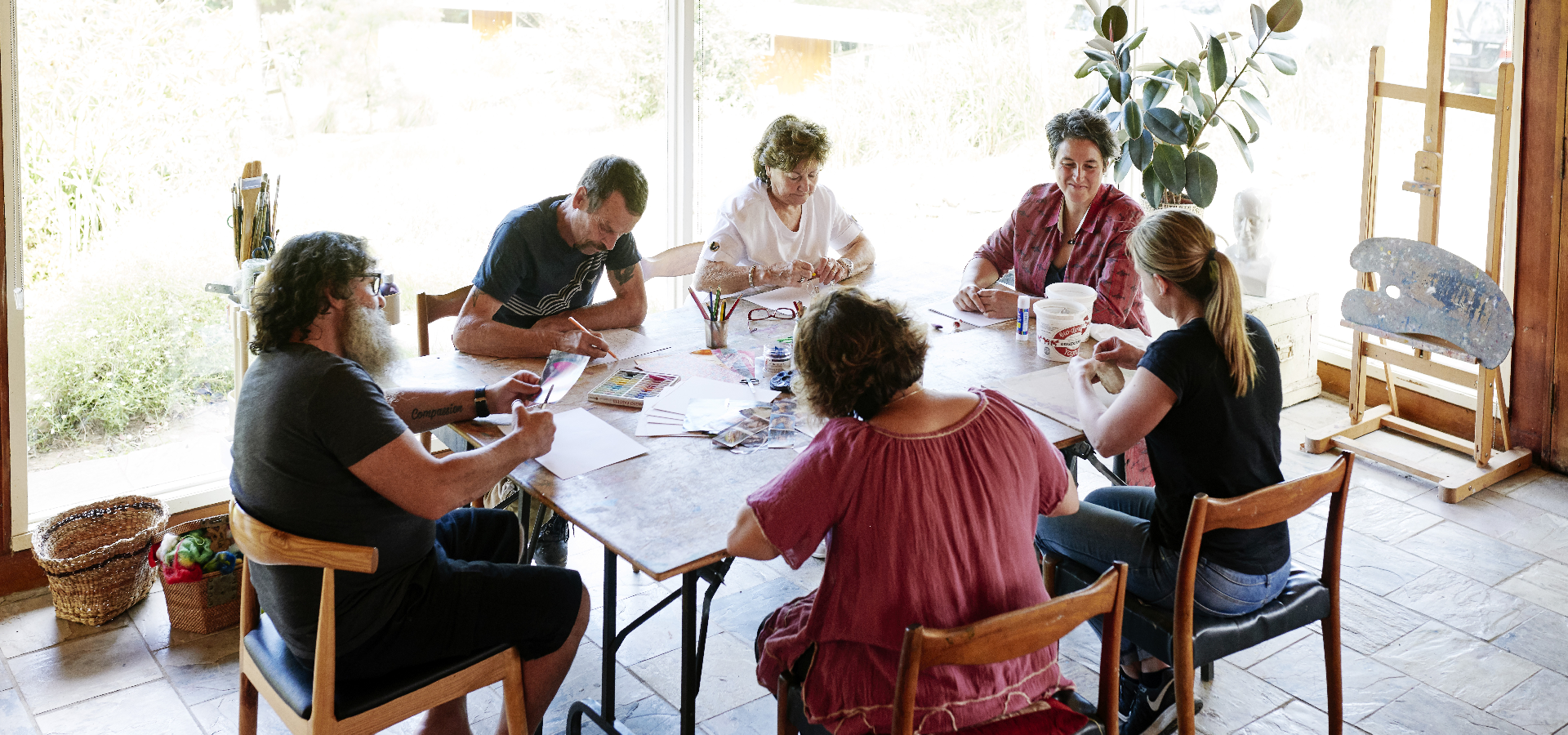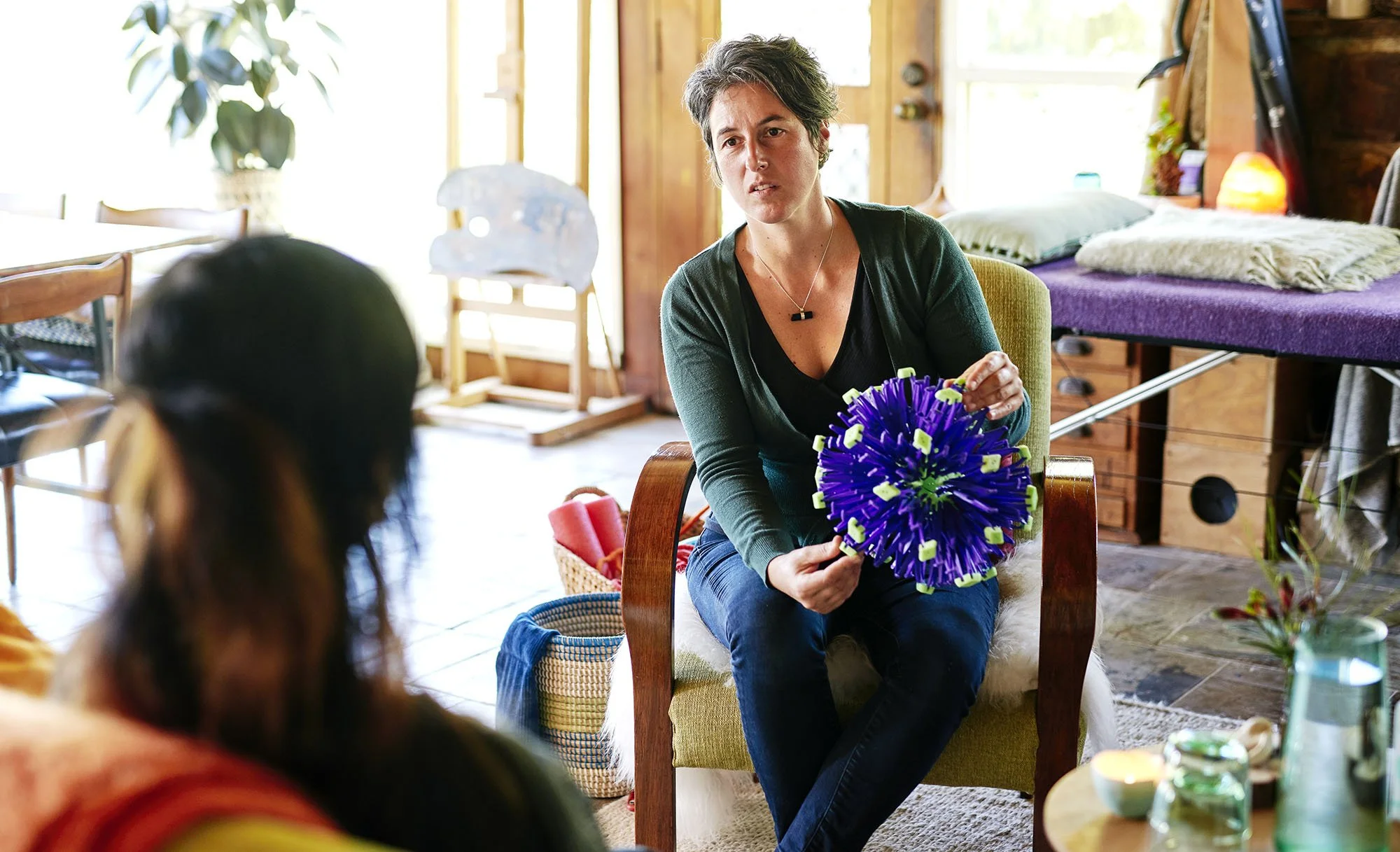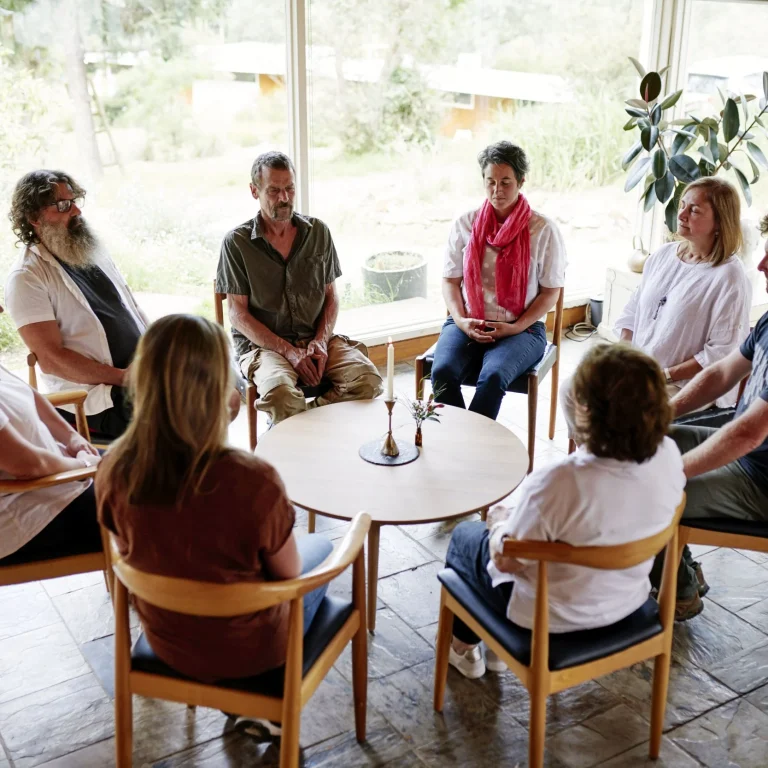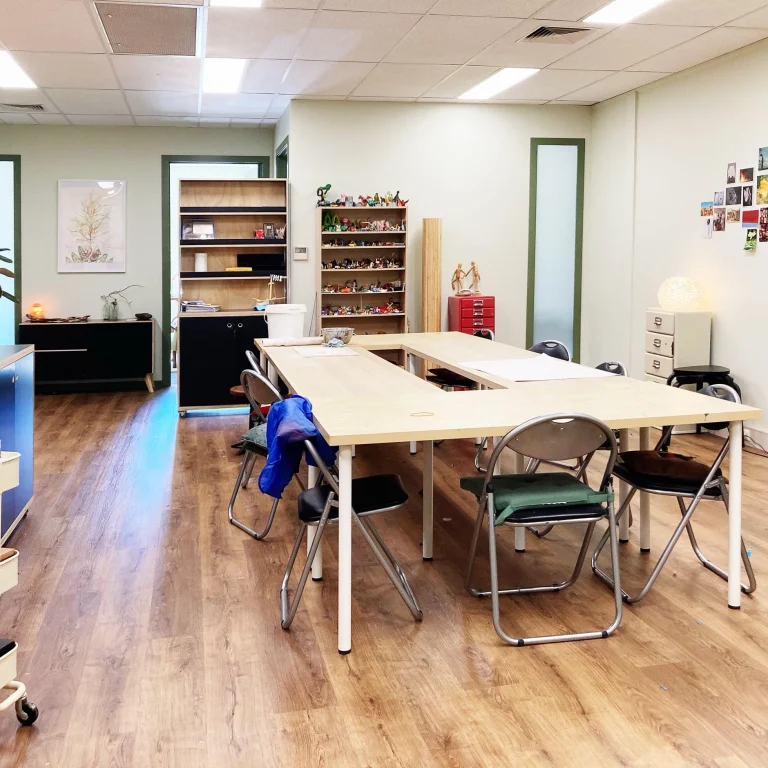FAQ
YOUR QUESTIONS ANSWERED
Common questions

About ITT
Integrated Trauma Therapy (ITT) is a body-focused psychotherapy which works with the state of a persons nervous system and it’s effect on their mood and wellbeing.
A range of complementary and evidence-based therapies are utilised, including Somatic Experiencing (SE) Counselling, Art Therapy, Somatic Experiencing Table Work, Mindfulness and Movement, (frameworks) to help you return to the best you can be.
The effects of any unresolved trauma can inhibit a healthy life. Trauma recovery needs to be a gentle process, requiring integration for the effects to be long lasting.
ITT’s primary approach is to work with you using an SE trauma lens. We work with major or minor shock events, as well as the stress chemistry that has built up in the body over time.
What is trauma?
Trauma is such a big word. When we think of trauma, we think of something major that has happened to us. However, we can live with the stress chemistry of traumatic events without knowing it.
Trauma can become apparent to us when we have physical pain and tension, become unwell or have a major life challenge. Gradually the build-up of stress chemistry can cause other systems in the body to fail, resulting in severe illness and dysfunction.
Trauma can result from specific shock events, such as falls, car accidents, medical procedures, natural disasters, assaults and abuse of any kind. It can also be due to ongoing accumulative stress, where one can simply be living feeling chronically overwhelmed, whether from work, family and relationship challenges, chronic pain and fatigue, to severe developmental and attachment trauma from infancy, sexual abuse or mental health diagnosis.
These all have a physical impact on the body and affect our ability to function with sustainable vitality and presence
Is trauma therapy for me?
This therapeutic approach is for anyone who wants to feel less controlled by the confines of their trauma – whether severe or mild, physical, emotional or mental – and wants to use a variety of approaches to help them get there.
Somatic Experiencing (SE – Services and/or SE frameworks) addresses the story of the body. Talk therapies are valuable methods in gaining skills and greater awareness of your situation, past and present. Nevertheless, talking alone often ignores the body’s responses to trauma.
Somatic Experiencing is specifically for working with the bodymind. Using integrated therapies that work with the mind, the unconscious and the mind of the body makes for lasting change and freedom from fear and stress.
ITT benefits you by:
Treating physical pain, symptoms and stress patterns in the body
– Externalising and completing such internal processes
– Empowering transformational change, not just management
– Providing alternative approaches
– Allowing a person-centred and interactive approach
Why choose ITT and what does it treat?
ITT will help you to reduce the charge of a traumatic experience held in your body and views integration as an important component for lasting change, enabling you to return to life with improved function.
We aim to create the right conditions for you to receive the felt sense of a reparative experience. This enables resilience and increases your capacity to meet life without fear.
ITT can work with chronic fatigue, mental health disorders such as depression, anxiety, BPD, PTSD, physical pain, stress and tension, any sense of disconnectedness and disassociation from life, your relationships or with yourself. It can also work with shame states that can result in an inability to create the life you want.
What will I gain from the ITT approach?
We provide psychotherapeutic education about the Somatic Experiencing model. This allows you to learn transferrable skills and techniques so you can continue to use ITT in your daily life.
What are the benefits of ITT therapy?
ITT therapy can lead to several positive outcomes, including:
– Ease and settled presences in the body
– Access to your authentic self in your body
– Reduced shame about your body’s habits and behaviours
– Increased capacity to meet life challenges
– Alert aliveness
– A greater sense of safety, space and expansion in your body
– A quiet and calm headspace
– Less contraction and charge in the body.
How many sessions are required?
We recommend 3–10 individual sessions of 60–90 minutes for a specific issue or goal.
The number of sessions required and their frequency can be determined in collaboration and consultation with your therapist, where your history and goals for treatment are taken into consideration.
Individual and group therapy sessions are available, depending on your requirements.
What is Integrated Trauma Therapy (ITT)?
ITT is a gentle body-based approach to healing trauma. It blends talk therapy with somatic (body-
focused) methods like Somatic Experiencing (SE), Art Therapy, mindful movement, and nervous
system education. The aim is to help you feel safer in your body, regulate your emotions, and gently
process the effects of unresolved stress or trauma.
Is this like regular counselling or talk therapy?
Not quite. While talking is part of the process, ITT places more emphasis on what your body is
holding, not just your thoughts or memories. We work with how trauma lives in the nervous system,
which often shows up as anxiety, exhaustion, numbness, or feeling stuck.
What if I’m not sure I’ve experienced trauma?
You don’t need a trauma “label” to benefit from this work. Trauma can come from many experiences
– early relationships, ongoing stress, illness, accidents, or simply feeling unsupported. If you
experience anxiety, overwhelm, emotional numbness, or disconnection from yourself or others, ITT
may offer helpful tools.
Do I need to talk about my trauma in detail?
No. ITT is a gentle and non-invasive approach. You don’t need to retell or relive traumatic events. In
fact, many people find healing through learning how to track body sensations, shift patterns of
activation, and find safety in the present – often without needing to go into the full story.
I don’t think I have ‘trauma.’ Is this still for me?
Yes. Trauma isn’t just about major events. It can also result from ongoing stress, emotional neglect,
difficult relationships, or early developmental experiences. If you feel anxious, stuck, overwhelmed,
or disconnected from yourself or others, ITT can help you regulate your system and reconnect with a
greater sense of ease.
What happens in a session?
Sessions are guided by your needs and may include:
• Gentle body awareness and tracking sensations
• Somatic Experiencing practices
• Art-making or image-based reflection (no artistic skill required!)
• Mindful movement or grounding exercises
• Time for reflection, integration, and resourcing
It’s a collaborative process – everything is paced to suit your comfort and capacity.
Will I have to do art or movement?
Only if you want to. Art and movement are optional tools we can use when they feel helpful. Many
people find them useful ways to express and process things that are hard to put into words.
Is this suitable if I’m already in therapy?
Yes. ITT can be a complement to other therapeutic work, especially if your current therapy is more
cognitive or talk-focused. Some people also use ITT as a standalone process if they’re looking for a
body-based approach.
How many sessions will I need?
That depends on your goals and what you’re working with. Some people come for short-term
support (e.g., 6 – 8 sessions), while others find ongoing work more helpful. We’ll review your needs
together and adapt as we go.
How long are your sessions?
Individual Therapy (60 min or 90 min): in-person or face to face online.
Questions or bookings?
Use the contact form or email [insert email address] to book your free intro call or ask anything
you'd like to know.
What is your cancellation policy?
We understand life can be unpredictable. If you need to cancel or reschedule, please provide at least
24 hours’ notice prior to your session so we can offer the time to someone else. For Monday
appointments, 48 hours’ notice is required.
• Less than 24 hours’ notice will incur a 50% cancellation fee.
• Two consecutive missed sessions without notice will result in the full session fee, even if you're
unwell
If we’re able to fill your cancelled appointment, the fee will be waived. This policy supports
consistent access for all clients and helps maintain your place as a returning client.
Support For Individuals

Support For Practitioners
Professional support for integrating Somatic Experiencing & Art Therapy into clinical practice.


Who is this for?
These sessions are designed for:
• Therapists and counsellors in SE training (at any level).
• Clinicians wanting to bring more somatic or creative depth into their practice.
• Art Therapists seeking to apply trauma-informed, nervous system-based frameworks.
• Mental health professionals exploring embodied presence and relational attunement.
• Bodyworkers or movement-based practitioners integrating trauma-sensitive approaches.
What kind of support is offered?
Supervision and Professional Development Offerings:
One-on-one supervision sessions.
Monthly arts-based online group supervision.
If you are part of an organisation, professional development (PD) sessions can be tailored and
delivered to your team.
For SE students, we offer:
Personal and case consultation sessions at all levels.
Small group case consultations for beginners.
Stay supported with our newsletter featuring therapeutic principles and insights.
Professional development sessions
We provide a unique blend of:
• Somatic education and experiential learning.
• Reflective processing and clinical application.
• Creative and image-based practices to access implicit material.
These are dedicated supervision sessions designed to support and deepen your integration of SE and
Art Therapy principles into your professional practice.
What can I expect in a session?
Sessions may include:
• Somatic Experiencing (SE)-based inquiry.
• Art-making, image dialogue, and creative processing.
• Movement, gesture, and body-based exploration.
• Autonomic mapping and nervous system psychoeducation.
• Case-informed reflection (with strict client confidentiality).
I don’t think I have ‘trauma.’ Is this still for me?
Yes. Trauma isn’t just about major events. It can also result from ongoing stress, emotional neglect,
difficult relationships, or early developmental experiences. If you feel anxious, stuck, overwhelmed,
or disconnected from yourself or others, ITT can help you regulate your system and reconnect with a
greater sense of ease.
What happens in a session?
Sessions are guided by your needs and may include:
• Gentle body awareness and tracking sensations
• Somatic Experiencing practices
• Art-making or image-based reflection (no artistic skill required!)
• Mindful movement or grounding exercises
• Time for reflection, integration, and resourcing
It’s a collaborative process – everything is paced to suit your comfort and capacity.
What are the benefits of these sessions?
You’ll build capacity to:
• Stay resourced and embodied while working with clients.
• Understand and navigate somatic countertransference.
• Use creative tools for accessing implicit and non-verbal material.
• Deepen your clinical intuition and nervous system awareness.
• Apply key SE principles (e.g. titration, pendulation, orienting and presences) with confidence.
• Integrate somatic or non-verbal approaches into your existing therapeutic framework.
What is the format and structure?
• Session Length: 60 or 90 minutes.
• Delivery: Online via secure video or in-person (where available).
• Frequency: One-off or monthly by ongoing by arrangement.
• A supervision contract is required at the beginning of our work together.
Can I do personal therapy and have supervision with you also?
No, it is best to keep this separate for ethical reasons.
Can we work with material related to my clients?
Individual Therapy (60 min or 90 min): in-person or face to face online.
I’m new to SE/Art Therapy – can I still access this support?
Absolutely. These sessions can serve as a bridge to training, or as early-stage experiential exploration
to help you assess fit with somatic or creative modalities.
Will I be ‘doing’ art or movement in session?
Only if you choose to. Art-making and movement are invitational and can be adjusted to suit your
preferences and comfort.
What types of workshops do you offer?
We offer creative, body-oriented professional development workshops such as book alteration
workshops (e.g. Pandora's Box creative journal) and guided drawing sessions. These are designed to
support stress reduction, intuitive expression, self-awareness, and access to internal resources
through tactile and artistic processes.
Do I need any prior art or creative experience to participate?
No, prior art experience is not required! All workshops guide you step-by-step through materials and
creative processes.
What will I gain from participating in these workshops?
You can expect to destress, reconnect with your intuition, develop self acceptance, and ignite hope
and creativity. The workshops also help overcome internal barriers like self criticism and encourage
flow and presence.
Are workshops held in person, online, or both?
We offer a range of workshops, some held in person and others online, depending on the format
and focus of the session. Workshops in person are held at our Warrandyte venue, offering an
experiential and tactile experience best suited to a face-to-face setting.
How do I register for a workshop?
For registration details head to our ‘Services’ tab.
What is provided for a workshop?
All materials, teas and coffee are provided. Comfortable clothing is recommended.
Who facilitates these workshops?
All workshops are facilitated by experienced practitioners from Integrated Trauma Therapy, such as
Tania, who bring extensive expertise in somatic and creative therapeutic approaches. While not
detailed on the PDs page, this aligns with the broader practice’s offerings.
What are the group sizes for your workshops and online sessions?
To ensure a meaningful and effective experience, a minimum of 4 participants is required for each
session. Group sizes are intentionally kept small to allow for personal engagement and focused
support:
Art and Soul Workshop – Maximum of 12 participants
In-Person Workshops – Maximum of 10 participants
Online Professional Development (PD) – Maximum of 10 participants
Online Supervision Groups – Maximum of 8 participants
These limits help create a safe, interactive space where each participant can fully engage and receive
individual attention.
Workshop – FAQs

Room Bookings / Studio Hire

How can I check or know what rooms are available when?
Rooms are available evenings and weekends only. There is currently no online calendar, so please
email us at info@integratedtraumatherapy.com.au with your enquiry, and we’ll get back to you with
availability details.
What is the process of booking the studio or consulting room and paying?
To book the studio or consulting room, follow these steps:
Check availability by emailing us your Expression of Interest form. Please note, there is no online
calendar, and bookings are limited to evenings and weekends.
Agree to our Terms and Conditions which will be sent to you once we receive your enquiry.
Receive confirmation of your booking via email.
Once confirmed, you can make payment via EFT (Electronic Funds Transfer) using the details
provided.
For all booking enquiries, please contact info@integratedtraumatherapy.com.au.
How many trestle tables and chairs fit comfortably in the space?
Yes, there are 2 long timber trestle tables, 2 smaller portable tables, 1 longer table, and 12 folding
chairs. If more furniture is needed, they can be sourced.
Is there music/sound system?
Yes, there is a SONOS Move system, which anyone can connect to via Bluetooth or Wi-Fi with their
phone. You can play all your favourite tracks via your SONOS app, Spotify, Soundcloud, iTunes, and
any other app.
What’s the cancellation policy and how much notice do you need?
A week’s notice is required for studio hire cancellation and 3 days prior for consulting rooms,
otherwise there will be a fee of 50% of the hiring cost.
Do I need insurance?
Yes, you need public liability insurance for yourself and your group members.


 Cart is empty
Cart is empty